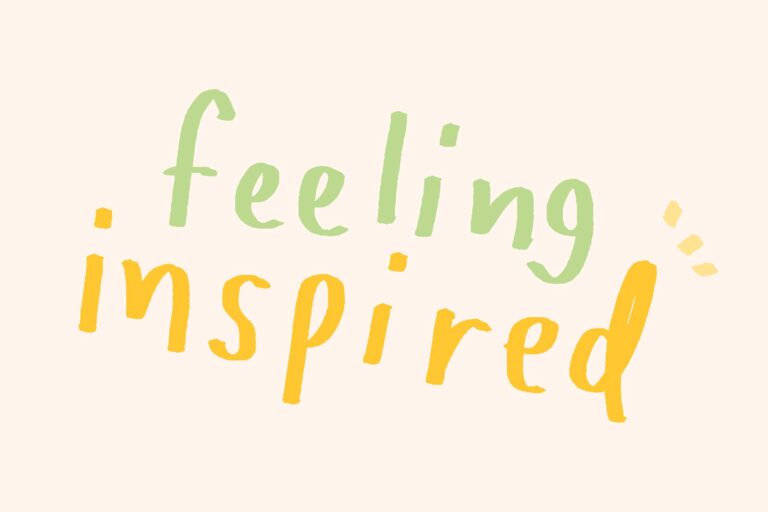30 self improvement challenges you can start today
You know that feeling when you want to do better, be better, feel better but the idea of redoing your entire life feels impossible?
Like you need to wake up at 5 am, meal prep on Sundays, start journaling, meditate, work out, read more, drink more water, be more present, and somehow also have your shit together by next Tuesday.
So you do nothing. Because all of it feels too big.
Self improvement challenges work because they’re small enough to actually do, but powerful enough to create real change.
You’re not trying to become a different person overnight. You’re just committing to one thing for a set amount of time and that one thing starts to shift everything else.
Small, consistent actions create long-term change. Not because they’re magic. But because they prove to you that you can do what you say you’re going to do. And that changes the story you tell yourself about who you are.
So here are 30 daily self development habits and personal growth challenges you can start right now. Not Monday. Not next month. Today.
Pick one. Do it. See what changes.
Which self improvement challenge do you need right now?
- If you’re stuck in your head and can’t get moving: Jump to productivity and focus challenges – start with #8 (no snooze) or #10 (finish what you start).
- If you’ve been beating yourself up lately: Go straight to self-love and confidence challenges – try #11 (mirror talk) or #12 (compliment yourself).
- If everything feels overwhelming and you’re barely keeping it together: Start with emotional and mental wellbeing challenges – #16 (journaling) or #19 (kindness) will help.
- If you know what you want but keep talking yourself out of it: Try mindset and mental growth challenges – #5 (fear-facing) or #3 (no complaining) will push you forward.
- If you feel disconnected from everyone around you: Head to the connection challenges and pick one that scares you a little
- If you’re not sure what you need: Pick the challenge that made your stomach drop when you read the title. That’s the one.
Mindset and mental growth challenges
These self improvement challenges help you rewire the way you think, build mental resilience, and shift the internal narrative that’s been running your life.
1. The gratitude challenge (30 days)
What you do: Every day for 30 days, write down three things you’re grateful for. Use a journal, notes app, or even a text to yourself.
The rules:
- Must be three specific things from your actual day – not generic (“I’m grateful for my family.”)
- Can be tiny: good coffee, no traffic, a funny text, your bed was comfortable.
- Write them at the same time every day (before bed works best, or first thing in the morning).
- Don’t repeat the same three things every day – find new ones.
What this looks like:
Day 1: “The barista remembered my order. My coworker made me laugh. I had 20 minutes to myself at lunch.”
Day 2: “My dog was extra cuddly. I found a parking spot right away. Dinner turned out good.”
Why it works:
Your brain is wired to scan for problems – it’s a survival thing. This challenge trains it to also scan for good. You’re not pretending life is perfect. You’re just noticing what’s working alongside what’s not.
2. Positive self-talk challenge (14 days)
What you do: Catch one negative thought about yourself each day and write it down. Then immediately write a more honest, less brutal version next to it.
The rules:
- Carry a small notebook or use your phone’s notes app.
- The moment you catch yourself thinking something harsh, write it down.
- Don’t wait until the end of the day – do it in the moment.
- The reframe doesn’t have to be positive – just less cruel and more accurate.
What this looks like:
“I’m so lazy, I can’t do anything right.” → “I’m tired and I’ve been pushing hard. I need rest, not criticism.”
“I always mess everything up.” → “I made a mistake. That’s not the same as being a mess.”
“Nobody likes me.” → “I’m feeling lonely right now. That doesn’t mean I’m unlikeable.”
What changes:
You’re not trying to think positive thoughts. You’re just stopping the spiral of beating yourself up. That’s the shift that matters.
3. No complaining challenge (7 days)
What you do: For seven full days, don’t complain – out loud, in your head, or via text.
The rules:
- You CAN state facts: “I’m tired” or “This situation is hard” or “I don’t like this”
- You CANNOT spiral into victim narrative: “Everything always goes wrong for me” or “Nothing ever works out” or “This is so unfair”
- If you catch yourself complaining, acknowledge it and stop mid-sentence
- You can vent to one person for 5 minutes max if you absolutely need to, but then you’re done
What this looks like:
Instead of: “I hate my job, it’s the worst, I’m so miserable, why does this always happen to me.”
Say: “I’m not happy at work right now. I need to figure out what needs to change.”
Instead of: “The weather is terrible, this week is dragging, everything is annoying.”
Say: “It’s been a long week. I’m ready for the weekend.”
What you’re actually building:
Complaining feels like venting, but it’s actually rehearsing. You’re practicing the story that life is happening TO you instead of practicing the story that you have power. Seven days of not complaining won’t fix your problems. But it’ll show you how much energy you’re spending reinforcing the narrative that you’re powerless.

4. Daily affirmation challenge (21 days)
What you do: Every morning for 21 days, say one empowering statement to yourself out loud before you do anything else.
The rules:
- Must be said OUT LOUD (not just thought)
- Must be something you actually believe or can believe – no “I am a millionaire” if you’re broke
- Say it while looking in the mirror if possible
- Can be the same affirmation every day or change it based on what you need that day
What this sounds like:
- “I’m doing the best I can with what I have.”
- “I don’t have to be perfect to be valuable.”
- “I’m learning. That’s enough.”
- “I can handle what today brings.”
- “My worth isn’t based on my productivity.”
What this actually does:
You’re interrupting the default morning anxiety spiral with something intentional. You’re not trying to convince yourself everything’s great. You’re just reminding yourself of something true that you keep forgetting.
5. Fear-facing challenge (10 days)
What you do: Do one small thing each day that scares you for 10 days. Track what you did each day.
The rules:
- Must be something that makes you uncomfortable (not dangerous)
- Must be something you’d normally avoid or talk yourself out of
- Can’t be the same thing every day – find 10 different small fears to face
- Do it even if your hands are shaking or your stomach drops
What this might be:
- Day 1: Speak up in a meeting
- Day 2: Ask for what you need instead of hinting
- Day 3: Post something online without overthinking it for an hour first
- Day 4: Have a conversation you’ve been avoiding
- Day 5: Try something new where you might look stupid (dance class, new hobby)
- Day 6: Say no to something you’d usually say yes to out of guilt
- Day 7: Wear something bold that makes you feel exposed
- Day 8: Reach out to someone first instead of waiting for them
- Day 9: Admit you don’t know something instead of pretending
- Day 10: Tell someone how you really feel
What ten days of this teaches you:
Confidence isn’t something you wait to feel. It’s something you build by doing the thing before you feel ready. Ten small acts of courage teach you more than a thousand affirmations.
Productivity and focus challenges
These simple self growth ideas help you build consistency, focus, and the discipline to follow through on what you say you’ll do.
6. Morning routine challenge (14 days)
What you do: Create a simple 3-5 step morning routine and do it in the exact same order every single day for 14 days.
The rules:
- Write down your routine the night before you start
- Keep it simple – 3 to 5 steps max
- Must be doable even on hard days (don’t include a 45-minute workout if you won’t do it)
- Do the steps in the same order every day
- No skipping steps
- No checking your phone until the routine is done
What this might look like:
Step 1: Wake up, drink a full glass of water.
Step 2: Make coffee.
Step 3: Write three sentences in a journal.
Step 4: Get dressed (not stay in pajamas).
Step 5: Make your bed.
That’s it. Same thing. Same order. Every day.
The change you’re building:
Your morning sets the tone. When you start with intentional actions instead of chaos, the rest of the day follows. You’re teaching yourself that you can be consistent, even with something small.
7. Deep work challenge (7 days)
What you do: Every day for seven days, work on ONE passion project for one full hour. No interruptions, no distractions, no multitasking.
Pick the thing you keep saying you’ll get to “someday.” The book. The business idea. The creative project. The skill you actually want to learn. Whatever it is that lights you up but keeps getting pushed aside.
The rules:
- Set a timer for 60 minutes.
- Phone goes in another room (not just silent – GONE).
- Close all tabs except what you need for this one task.
- If someone interrupts you, politely say “I’m in the middle of something, can I get back to you in 45 minutes?”
- Don’t check email, Slack, texts, or anything else until the hour is done
What this actually looks like:
Day 1: Pick your project and brainstorm everything – ideas, goals, what you actually want this to become.
Day 2: Create a plan. What are the actual steps? What happens first, second, third?
Day 3: Do the research. What do you need to know? What resources exist? Who’s done this before?
Day 4: Start building. Write the first page. Design the first mockup. Create the first piece.
Day 5: Keep building. Push past the awkward beginning phase. Make progress.
Day 6: Refine what you’ve created. Make it better. Fix what’s not working.
Day 7: Finish one complete piece or milestone. Something you can point to and say “I made this.”
Why this matters:
Most of us haven’t focused on something we actually care about for a full hour in years. We’re constantly context-switching between what other people want from us. This challenge shows you what you’re actually capable of when you give your real work – the stuff that matters to YOU – your full attention.

8. No snooze challenge (10 days)
What you do:
For 10 days straight, get up the first time your alarm goes off. No snooze button. No “just five more minutes.”
The rules:
- Set your alarm for the time you actually need to get up (not 30 minutes early to allow for snoozing).
- Put your phone/alarm across the room so you have to physically get out of bed to turn it off.
- Once you turn off the alarm, immediately go to the bathroom or kitchen – don’t get back in bed.
- If you accidentally snooze, the 10 days starts over.
What this looks like:
Alarm goes off at 6:30am → your feet hit the floor → you walk to the bathroom → you splash water on your face → you’re up.
Why it works:
It’s not about the sleep you gain or lose. It’s about starting the day with a decision you followed through on. Every time you hit snooze, you’re practicing “I say I’ll do things and then I don’t.” This flips that script.
9. Declutter challenge (14 days)
What you do: Tackle one small area every day for 14 days. Set a timer for 15 minutes and declutter that one space.
The rules:
- One area per day – don’t try to do your whole house.
- Set a timer for 15 minutes (if you finish early, great; if not, stop at 15 minutes and continue tomorrow).
- Have three bags/boxes ready: Keep, donate/sell, trash
- Make a decision about every item – no “I’ll decide later” piles
- If you haven’t used it in a year and don’t love it, it goes.
What this looks like:
Day 1: One or more drawers in your kitchen
Day 2: Your nightstand
Day 3: Under your bathroom sink
Day 4: Your coat closet
Day 5: The junk drawer
Day 6: Your car
Day 7: One shelf in your closet
Day 8: Your desk
Day 9: Medicine cabinet
Day 10: That one corner where stuff piles up
Day 11: Desktop on your computer (delete old files, organize folders)
Day 12: Your phone (delete apps you don’t use, old screenshots)
Day 13: Email inbox (delete, unsubscribe, organize)
Day 14: One more area you’ve been avoiding
What happens when you do this:
Clutter isn’t just physical. It’s mental. Every unfinished space is a tiny decision you’re still carrying. Clearing one space a day clears your head in ways you don’t expect.
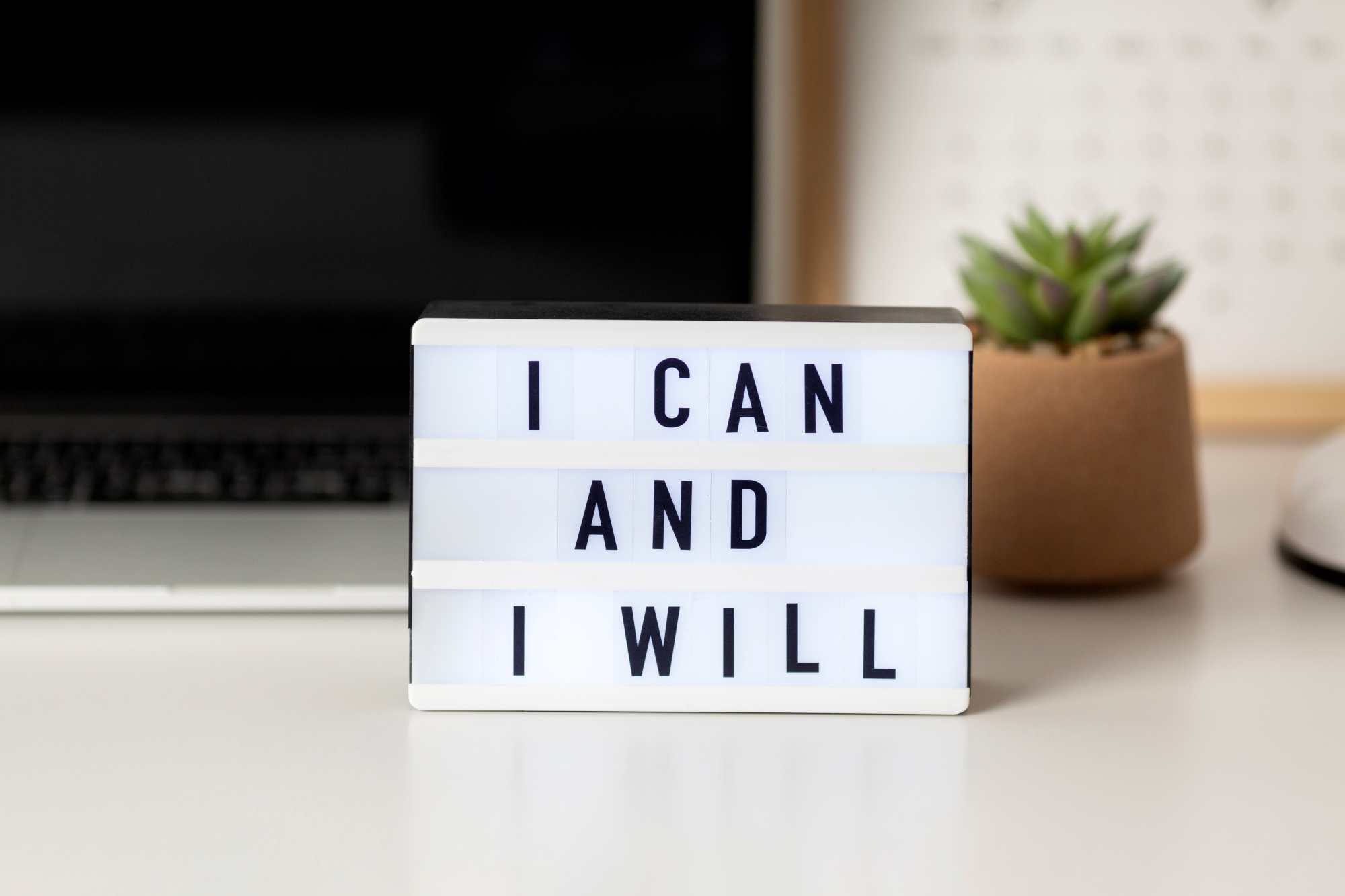
10. Finish what you start challenge (7 days)
What you do: Every day for seven days, pick one unfinished task and complete it fully. Not “work on it” – finish it.
The rules:
- At the start of each day, identify one unfinished thing.
- That thing must be 100% complete by the end of the day.
- If it’s too big to finish in one day, break it into a finishable piece (don’t pick “write a book” – pick “finish chapter 3”).
- Cross it off your list with satisfaction.
- Take a photo or screenshot of the completed thing if possible.
What this looks like:
Day 1: That email you drafted three weeks ago – finish and send it
Day 2: The book you’re 70% through – read the last 30%
Day 3: The expense report from last month, complete and submit it
Day 4: The half-organized closet – finish organizing it
Day 5: The work project you’re almost done with – finish it
Day 6: The gift you bought but haven’t wrapped or sent – wrap it and mail it
Day 7: The thank you note you’ve been meaning to write – write and send it
The reason this matters:
Unfinished things drain you. Each one is a tiny weight. Finishing seven things in seven days teaches you that you’re someone who completes things and that’s a different identity than “person who starts everything and finishes nothing.”
Self-love and confidence challenges
These 30-day challenge ideas help you rebuild your relationship with yourself and stop treating yourself like an afterthought.
11. Mirror talk challenge (14 days)
What you do: Every day for 14 days, look yourself in the eye in the mirror and say one kind thing to yourself out loud.
The rules:
- Must be done in front of a mirror.
- Must be said OUT LOUD.
- Must look yourself in the eye while you say it.
- Must be something kind – not a criticism disguised as motivation
- Can be the same thing every day or different things.
- If you start crying or feel emotional, that’s okay – keep going.
What this sounds like:
- “You showed up today even though it was hard.”
- “You’re trying. That counts.”
- “You deserve kindness – including from yourself.”
- “You’re doing better than you think.”
- “I see you. I’m proud of you.”
- “You’re enough exactly as you are.”
Why it works:
Most of us can’t look ourselves in the eye and say something nice without cringing. That’s the problem this challenge fixes. You’re practicing treating yourself like someone you care about.
12. Compliment yourself challenge (21 days)
What you do: At the end of each day for 21 days, write down one specific thing you did well that day.
The rules:
- Must write it down (journal, notes app, wherever).
- Must be specific – not “I did good today” but “I stayed calm when my coworker snapped at me”
- Must be something YOU did, not something that happened to you
- Can be tiny – you don’t have to save a life to deserve a compliment
- Read back through your list once a week
What this looks like:
- “I asked for help instead of suffering alone.”
- “I stayed calm when I wanted to spiral.”
- “I finished the thing I said I’d finish.”
- “I rested instead of forcing myself to push through.”
- “I set a boundary even though it was uncomfortable.”
- “I apologized when I was wrong.”
- “I made my friend laugh when they were sad.”
What this challenge does:
You’re training your brain to notice what you’re doing right, not just obsess over what you’re doing wrong. After 21 days, you’ll have a list of proof that you’re more capable than you think.
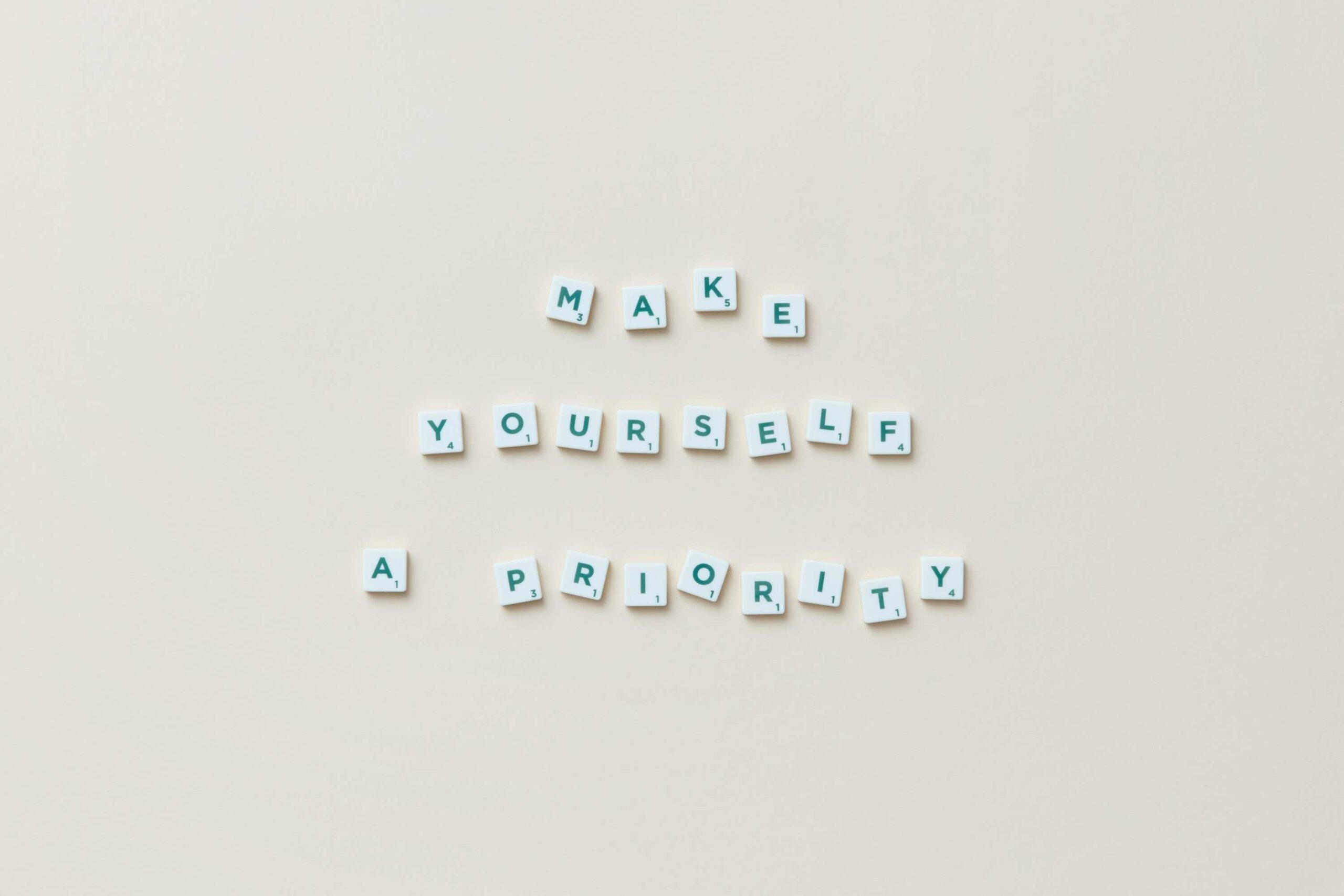
13. Boundaries challenge (7 days)
What you do: Say no to one thing that drains you each day for seven days.
The rules:
- Must be a real “no” – not “maybe later” or “let me think about it”
- Can be a boundary with others or with yourself
- Say it clearly without over-explaining
- Don’t apologize for saying no
- Notice how you feel after – relief, guilt, both?
What this looks like:
Day 1: Someone asks you to take on extra work – say no
Day 2: Plans you don’t want to go to – cancel without a fake excuse
Day 3: Someone texts expecting an immediate response – respond when you’re ready
Day 4: Someone asks for a favor you don’t have capacity for – decline
Day 5: A conversation that’s making you feel worse – exit it
Day 6: Scrolling when you should be sleeping – put the phone down and say no to yourself
Day 7: Pressure to attend something out of obligation – decline
Example scripts:
- “I can’t take that on right now.”
- “That doesn’t work for me.”
- “I need to pass this time.”
- “I’m not available.”
- “No, thank you.”
Why it works:
Every time you say yes when you mean no, you’re teaching yourself that your needs don’t matter. This challenge teaches you the opposite.
14. Solo date challenge (4 weeks)
What you do: Once a week for four weeks, take yourself somewhere alone. No partner, no friend, no distractions – just you.
The rules:
- Must leave your house (not just stay home alone)
- Must be at least one hour
- Phone can come but stays in your bag (emergencies only)
- No working, no errands – this is for enjoyment
- Try a different place each week
What this looks like:
Week 1: Coffee shop with a book or journal
Week 2: Walk in a new neighborhood or park
Week 3: Museum, art gallery, or bookstore
Week 4: Restaurant or cafe – eat a meal alone
What happens when you do this:
Most of us are so uncomfortable being alone with ourselves that we’ll do anything to avoid it. This challenge makes you practice liking your own company. By week four, sitting alone won’t feel weird – it’ll feel peaceful.
15. Digital detox challenge (one-time + ongoing)
What you do: Go through your social media and unfollow 10 accounts that make you feel “not good enough.” Then check in after one week to see how you feel.
The rules:
- Must be accounts that trigger comparison, inadequacy, or “I’m behind” feelings
- Can be influencers, people you know, aspirational accounts, anyone
- Unfollow, mute, or block – whatever you need
- No guilt. No explanation.
- After one week, notice if your scrolling feels different
How to identify which accounts to unfollow:
Scroll through your feed right now. Notice your body:
- Which posts make your stomach drop?
- Which ones make you feel behind?
- Which ones make you feel like you’re failing?
- Which ones make you compare yourself?
Those accounts – unfollow them.
What this looks like:
The perfect mom account that makes you feel like a bad parent. The fitness person whose body you’ll never have.
The entrepreneur who makes you feel like you’re not doing enough. The old friend whose life looks better than yours.
The aesthetic account that makes your home feel inadequate.
What this challenge helps with:
You’re curating your input. If scrolling makes you feel worse about yourself, that’s not inspiration – that’s poison. This challenge helps you clear it out.
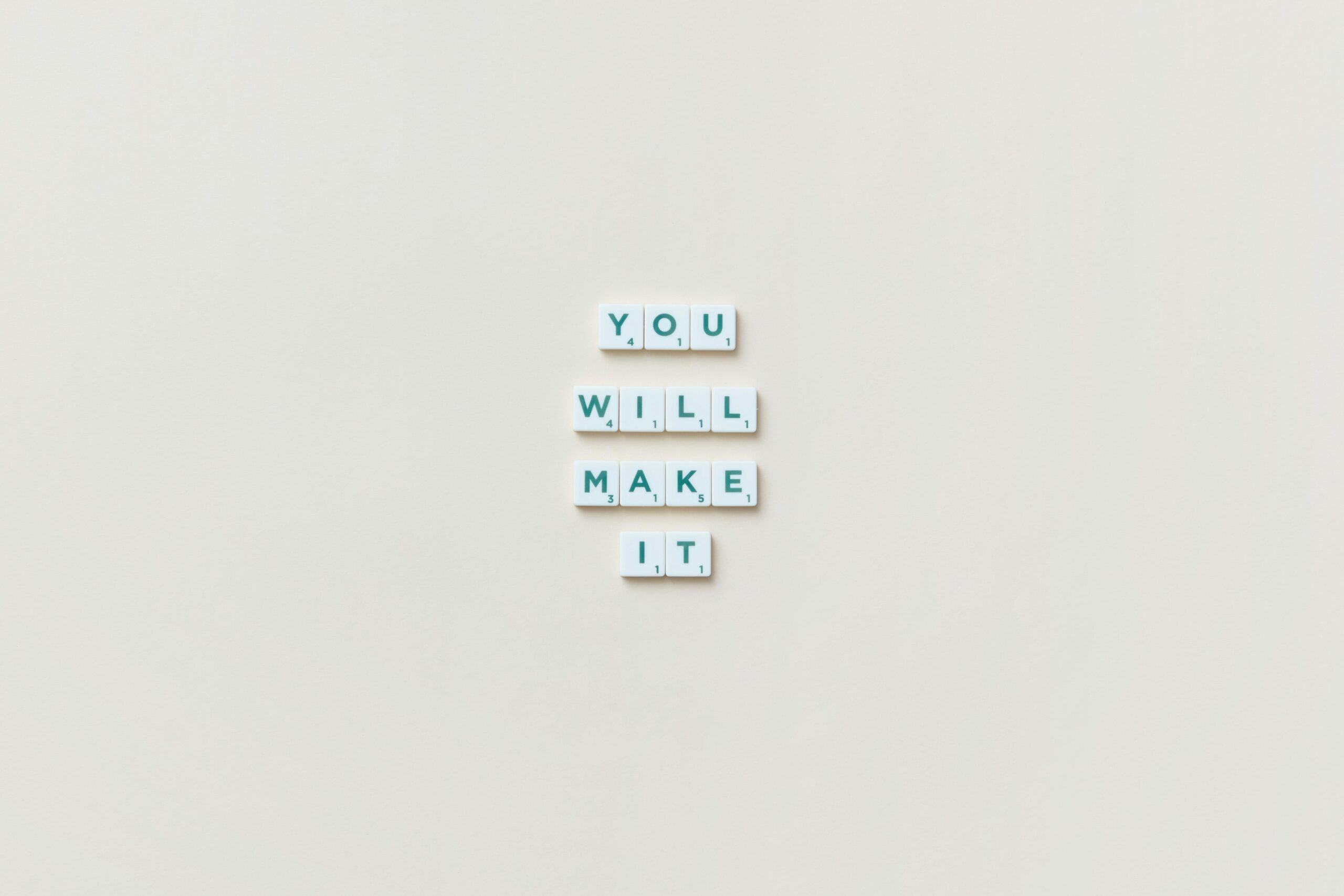
Emotional and mental wellbeing challenges
These how to start improving yourself today challenges help you process emotions, build inner calm, and stop running from your own feelings.
16. Journaling challenge (30 days)
What you do: Write freely for 10 minutes every day for 30 days about how you feel.
The rules:
- Set a timer for 10 minutes
- Your hand keeps moving the entire time – no stopping to think
- No grammar, no punctuation, no making sense required
- Don’t reread as you write
- Write about whatever’s taking up space in your head
- If you run out of things to say, write “I don’t know what to write” until something else comes
What this looks like:
“I’m frustrated and I don’t even know why everything feels hard today nothing specific happened I just feel heavy like I’m carrying too much I don’t know what I’m carrying though I just know I’m tired I’m so tired of feeling tired…”
Not pretty. Just honest.
Why it works:
Most of us don’t process our emotions – we just carry them around and wonder why we’re exhausted. This gets them out of your body and onto the page. After 30 days, you’ll notice patterns you couldn’t see before.
17. Meditation challenge (14 days)
What you do: Practice mindfulness or deep breathing for 5-10 minutes every day for 14 days.
The rules:
- Find a quiet spot where you won’t be interrupted
- Set a timer (start with 5 minutes if 10 feels like too much)
- Sit comfortably – chair, floor, couch, doesn’t matter
- Close your eyes or soften your gaze
- Focus on your breath: in through your nose, out through your mouth
- When thoughts come (they will), notice them and return to your breath
- Don’t judge yourself for getting distracted – that’s literally the practice
What this looks like:
Sit down. Set timer for 5 minutes. Close eyes. Breathe in slowly through your nose for 4 counts. Hold for 4 counts. Breathe out through your mouth for 4 counts. Hold for 4 counts. Repeat.
Your brain will wander within 10 seconds. That’s normal. When you notice you’re thinking about your to-do list, just say “thinking” in your head and come back to your breath.
Apps that help (optional): Insight Timer (free), Headspace, Calm, or just use your phone timer.
What you’re building:
You’re teaching your brain that you can be still. That you don’t need constant input. That you can sit with yourself without needing to fix, distract, or numb. Even five minutes a day changes how your nervous system responds to stress.
18. Letting go challenge (7 days)
What you do: Every evening for seven days, write down one thing you’re ready to release. Then physically let it go.
The rules:
- Write it on paper (not your phone)
- Be specific about what you’re releasing
- After you write it, do something physical to release it: rip up the paper, burn it safely, throw it away, bury it
- Say out loud: “I’m letting this go”
- Don’t pick it back up mentally after you release it
What this looks like:
Day 1: What grudge or resentment am I still carrying that’s weighing me down?
Day 2: What do I need to stop trying to control?
Day 3: What story about myself am I ready to stop believing?
Day 4: What expectation of someone else is causing me pain?
Day 5: What am I feeling guilty about that I need to forgive myself for?
Day 6: What comparison am I making that’s stealing my peace?
Day 7: What belief about my worth or value is no longer serving me?
Write it. Rip it up. Let it go.
What changes (besides the obvious):
You’re practicing release. Most of us hold onto things years past their expiration date. The physical act of destroying the paper makes the release feel real instead of just conceptual.

19. Kindness challenge (21 days)
What you do: Do one intentional kind act every day for 21 days. Track what you did in a journal or notes app.
The rules:
- Must be intentional – not just being polite
- Can be for anyone: stranger, friend, family, coworker, yourself
- Doesn’t have to cost money
- Must be something you wouldn’t normally do
- Write down what you did and how it felt
What this looks like:
Day 1: Pay for the person’s coffee behind you in line
Day 2: Text someone you appreciate and tell them specifically why
Day 3: Leave a genuine, detailed compliment on someone’s post
Day 4: Help someone without being asked
Day 5: Let someone merge in traffic without annoyance
Day 6: Bring your coworker their favorite snack
Day 7: Leave a generous tip
Day 8: Send an encouraging message to someone having a hard time
Day 9: Compliment a stranger
Day 10: Do a chore your partner usually does without mentioning it
Day 11: Donate something you own to someone who needs it
Day 12: Write a positive review for a small business you love
Day 13: Give someone your full attention when they’re talking
Day 14: Make dinner for someone
Day 15: Send flowers or a card to someone for no reason
Day 16: Volunteer an hour of your time
Day 17: Forgive someone (even if just in your heart, not out loud)
Day 18: Let someone go ahead of you in line
Day 19: Tell someone what they mean to you
Day 20: Pick up litter you didn’t create
Day 21: Do something kind for yourself – take a bath, buy yourself flowers, rest without guilt
The reason why this matters:
Kindness shifts your focus outward. It reminds you that you have something to give. It makes you feel more connected and less alone. And the more you practice it, the more natural it becomes.
20. Forgiveness challenge (7 days)
What you do: Each day for seven days, choose to forgive someone (including yourself) for something small. Write it down.
The rules:
- Must write it down: “I forgive [name] for [specific thing]”
- Must be specific – not “I forgive them for everything”
- Doesn’t have to be big, life-altering forgiveness – small, daily release counts
- You don’t have to tell the person you’re forgiving them (this is for you)
- If you’re forgiving yourself, be specific about what you’re forgiving yourself for
What this looks like:
Day 1: What did I do this week that I’m still beating myself up about?
Day 2: Who let me down recently in a small way that I’m still holding onto?
Day 3: What mistake did someone close to me make that I haven’t fully released?
Day 4: What expectation of myself did I not meet that I need to forgive myself for?
Day 5: Who hurt my feelings or disappointed me that I’m still replaying in my mind?
Day 6: What did a family member say or do that’s still bothering me?
Day 7: What part of my past or my journey am I still judging myself for?
What your brain is learning:
Holding onto resentment – even small, daily resentments – is exhausting. This challenge teaches you to let go before it builds into something heavy. You’re practicing forgiveness as a daily habit, not a one-time event.
Growth and life expansion challenges
These personal growth challenges push you out of autopilot and into intentional growth.
21. New skill challenge (30 days)
What you do: Learn something new every day for 30 days – even if just for five minutes. Track what you learned.
The rules:
- Must be something you didn’t know before today
- Spend at least 5 minutes learning it
- Can be anything: language, skill, fact, recipe, how something works
- Write down what you learned each day
- Actually practice/apply it if possible
What this looks like:
Day 1: Learn 5 words in a new language (Duolingo, YouTube)
Day 2: Watch a tutorial on how to fix something in your house
Day 3: Learn a new recipe and cook it
Day 4: Watch a TED talk about a topic you know nothing about
Day 5: Learn how to do a basic home repair (change a tire, unclog a drain)
Day 6: Watch a YouTube tutorial on a skill you’ve always wanted (drawing, guitar, etc.)
Day 7: Learn about a historical event you don’t know much about
Day 8: Learn how something works that you use every day (your phone, your car, etc.)
Day 9: Watch a documentary about something new
Day 10: Learn a keyboard shortcut that will save you time
Day 11-30: Keep going – new word, new fact, new skill, new recipe, new anything
Resources: YouTube tutorials, Duolingo, Skillshare, library books, podcasts, documentaries, free online courses, TED talks…
What you’re proving to yourself:
You’re proving to yourself that you’re still capable of learning. That growth isn’t something that stopped when you finished school. That your brain still works and you can still expand.
22. Reading challenge (30 days)
What you do: Read at least 5 pages of a self development book every single day for 30 days.
The rules:
- Must be an actual book (physical or ebook) – not articles or social media posts
- Must be 5 pages minimum (more is fine, but 5 is the goal)
- Must be a self development/personal growth book
- Read at the same time every day to build the habit
- No skipping days
What this looks like:
Pick one book at the start of the challenge. Examples:
- Atomic habits by James Clear
- The mountain is you by Brianna Wiest
- You are a badass by Jen Sincero
- The gifts of imperfection by Brené Brown
- Can’t hurt me by David Goggins
- Any book that will actually help you grow
Read 5 pages every morning with coffee, or every night before bed, or during lunch break. Same time, every day.
Why it works:
Five pages is doable. And 5 pages a day for 30 days is 150 pages – a whole book. Most people say they want to read more but never do. This challenge proves you can. You’re building consistency and feeding your brain something intentional instead of just consuming whatever the algorithm serves you.
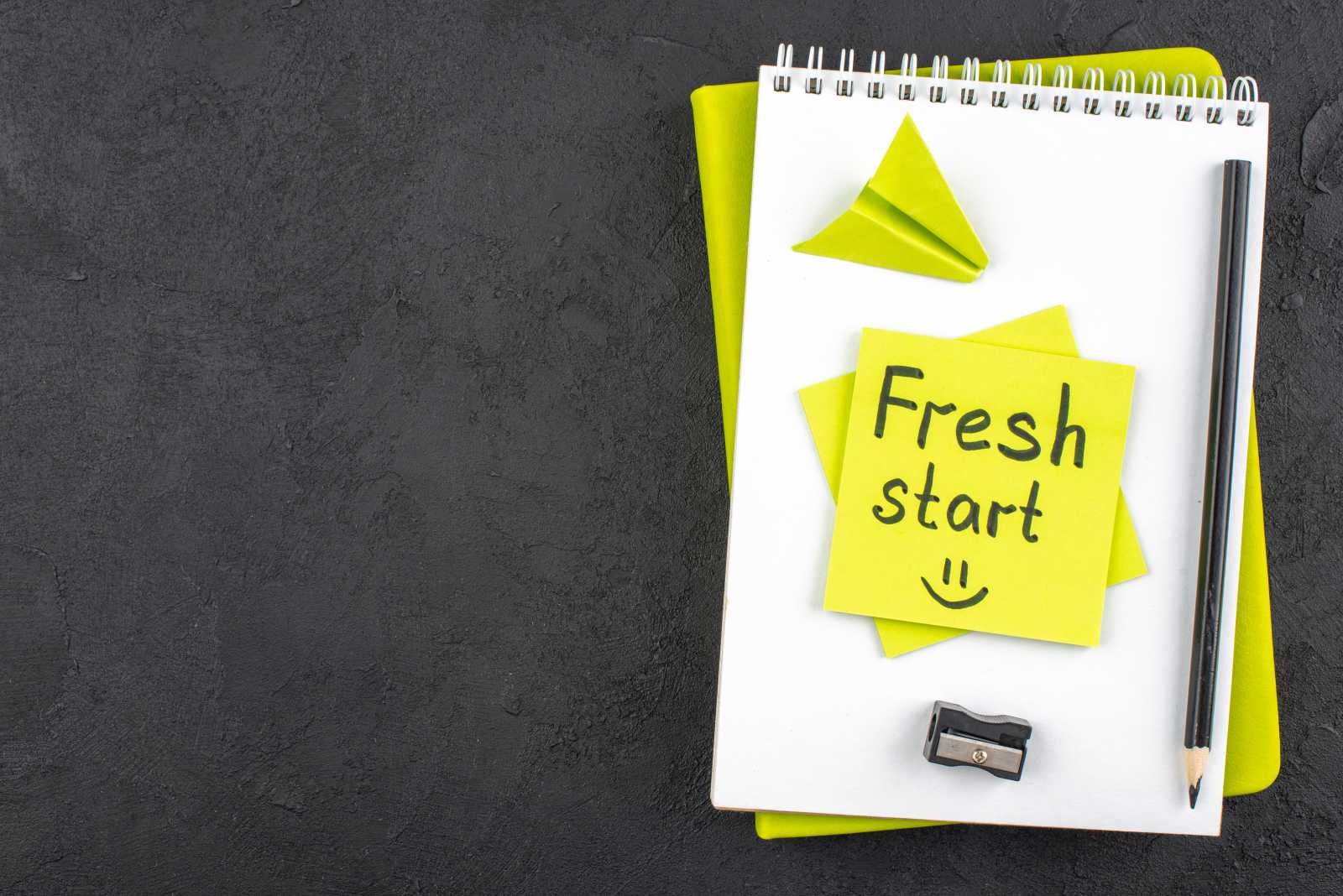
23. Stretch your comfort zone challenge (4 weeks)
What you do: Try one new experience each week for four weeks. Something you’ve never done or something that makes you slightly uncomfortable.
The rules:
- Must be genuinely new or uncomfortable for you
- Can’t be something you already do regularly
- Must actually do it, not just think about doing it
- Take a photo or write about the experience afterward
- Notice how you feel before, during, and after
What this looks like:
Week 1: Go to a new restaurant or try a cuisine you’ve never had
Week 2: Take a different route home, explore a new neighborhood, visit a new park
Week 3: Try a new workout class, new hobby, or new activity (pottery, painting, rock climbing)
Week 4: Start a conversation with a stranger, go somewhere alone you’d normally go with others, or do something that scares you a little
Why you’ll feel different:
Comfort zones shrink when you stay in them. This challenge expands yours – not dramatically, just consistently. You’re teaching yourself that new doesn’t have to mean terrifying, and that you’re capable of more than you think.
24. Money mindset challenge (30 days)
What you do: Track every single dollar you spend for 30 days. Write it down or use an app.
The rules:
- Track EVERYTHING – coffee, groceries, gas, subscriptions, that $2 impulse buy, all of it
- Write down the amount and what it was for
- Don’t judge yourself, just observe
- At the end of each week, review where your money went
- At the end of 30 days, categorize your spending and notice patterns
What this looks like:
Use a notes app, spreadsheet, or budgeting app like YNAB, Mint, or EveryDollar.
November 15: $5.50 coffee, $45 groceries, $12 lunch, $15 gas, $9.99 Netflix
November 16: $4 snack, $60 dinner out, $25 impulse online purchase
November 17: $100 electric bill, $8 coffee, $30 groceries
At the end of the week, add it up. At the end of the month, look at the whole picture.
The shift you’ll notice:
Most of us avoid looking at our money because it feels shameful or overwhelming. This challenge makes you look – without the shame spiral. Awareness is the first step to change. You can’t fix what you won’t face. After 30 days, you’ll know exactly where your money goes, and you can decide if that aligns with your actual priorities.
25. Healthy habit challenge (21 days)
What you do: Pick ONE small health habit and do it every single day for 21 days.
The rules:
- Only pick ONE habit (not three)
- Must be small and doable even on hard days
- Must do it every single day – no exceptions
- Track it with a checkmark, app, or habit tracker
- If you miss a day, start the 21 days over
Pick ONE of these (or create your own):
- Drink 64oz of water every day
- Walk for 10 minutes every day
- Add one fruit or vegetable to every meal
- Stretch for 5 minutes every morning or night
- Take your vitamins
- Do 10 pushups or squats before your morning coffee
- Go to bed at the same time every night
- Do a 5-minute yoga video before bed
What this looks like:
You pick: “I’m going to walk for 10 minutes every single day for 21 days.”
Day 1: ✓ Walked around the block after dinner
Day 2: ✓ Walked during lunch break
Day 3: ✓ Walked even though it was raining (just around the house)
Day 4-21: Keep going
Why you’ll feel different:
You’re not overhauling your entire life. You’re proving to yourself that you can commit to one thing and follow through. That’s the foundation for everything else. After 21 days, the habit feels automatic and that’s when real change happens.
26. Social connection challenge (14 days)
What you do: Reach out to one person every day for 14 days. Not just liking their post, actual connection.
The rules:
- Must be intentional outreach (text, call, voice note, letter, coffee date)
- Can’t be work-related or transactional
- Must be genuine – no copy-paste messages
- Can be someone you talk to regularly or someone you’ve lost touch with
- Keep it simple – you don’t need to write a novel
What this looks like:
Day 1: Text your best friend: “Been thinking about you. How are you really doing?”
Day 2: Call your mom or dad just to chat
Day 3: Send a voice note to someone you miss
Day 4: Text an old friend: “Saw this and thought of you [share memory or inside joke]”
Day 5: Ask someone to grab coffee or go for a walk
Day 6: Check in on someone who’s been going through something hard
Day 7: Tell someone specifically what you appreciate about them
Day 8: Reconnect with someone you used to be close to
Day 9: Message someone: “What’s one good thing that happened this week?”
Day 10: Send a funny meme or video to someone who’d appreciate it
Day 11: Ask someone about something they care about
Day 12: Thank someone for something they did for you (even if it was a while ago)
Day 13: Invite someone to do something with you
Day 14: Tell someone you love them
What’s really happening here:
We’re more isolated than we realize. Everyone’s busy, overwhelmed, in their own world. But connection doesn’t happen by accident – you have to be intentional. This challenge makes you practice reaching out instead of waiting to be reached. And 14 days of connection reminds you that you’re not as alone as you think.

27. Creative expression challenge (30 days)
What you do: Create something every day for 30 days. Doesn’t matter what. Just make something.
The rules:
- Must be something you create (not consume)
- Can be anything: write, draw, paint, cook, build, design, photograph, make music, dance, whatever
- Doesn’t have to be good
- Doesn’t have to be shared
- Must be done for at least 10 minutes
- No perfectionism allowed – just create
What this looks like:
Day 1: Write a poem (even a bad one)
Day 2: Doodle in a notebook
Day 3: Take 10 photos of things you find beautiful
Day 4: Cook a meal from scratch without a recipe
Day 5: Paint or color (even in a coloring book)
Day 6: Write a short story or journal entry from a fictional character’s perspective
Day 7: Rearrange a room in your house
Day 8: Make a playlist
Day 9: Try a new recipe
Day 10: Build something (Lego, furniture, whatever)
Day 11-30: Keep creating – rotate between different forms or stick to one you love
What you’re rewiring:
Most of us stopped creating the moment someone told us we weren’t good at it. This challenge isn’t about being good. It’s about remembering that you’re capable of making things that didn’t exist before you made them. That’s powerful. And it reconnects you to a part of yourself that’s been dormant.
28. Financial freedom challenge (30 days)
What you do: Save one small amount every single day for 30 days. Start with whatever you can – $1, $5, $10.
The rules:
- Pick an amount you can actually sustain for 30 days
- Transfer it to savings the same time every day
- Don’t touch it during the challenge
- Track your progress (watch it add up)
- If you miss a day, make it up the next day
What this looks like:
Option 1: Save $1/day = $30 in 30 days
Option 2: Save $5/day = $150 in 30 days
Option 3: Save $10/day = $300 in 30 days
Option 4: Incremental challenge – save $1 on day 1, $2 on day 2, $3 on day 3, etc. = $465 in 30 days
Set a daily phone alarm: “Transfer $5 to savings.”
Do it. Every day. Watch it grow.
What’s this challenge really about:
It’s not about the amount. It’s about proving to yourself that you can set money aside consistently. That you have control. That saving isn’t something other people do – it’s something you do. After 30 days, you’ll have more money than you started with AND the habit that makes financial stability possible.
29. Goal setting challenge (7 days)
What you do: Spend 7 days getting crystal clear on what you actually want. One question per day. Write your answers down.
The rules:
- Set aside 15 minutes each day
- Answer the question honestly – not what you think you should want
- Write your answers by hand if possible
- Don’t edit yourself or make it pretty
- Be specific
The questions:
Day 1: What do I want my life to look like in one year? (Describe it in detail: where you live, what you do, how you feel, who you’re with, what your days look like)
Day 2: What’s one goal I keep saying I want but haven’t pursued? Why? (Be honest. What’s really stopping you?)
Day 3: If I could change one thing about my life right now, what would it be? (Not five things. One.)
Day 4: What would I do if I knew I couldn’t fail? (This reveals what you actually want underneath the fear)
Day 5: What do I need to let go of to move forward? (A belief, a habit, a person, a story, a fear – what’s holding you back?)
Day 6: What are three specific actions I can take this month toward what I want? (Small, concrete steps – not “be better” but “apply to three jobs” or “have the conversation I’ve been avoiding”)
Day 7: What will my life look like if I don’t change anything? (This is the one that makes you move. If everything stays the same, where will you be in a year? Five years?)
What changes when you do this:
Most people don’t fail because they’re incapable. They fail because they’re not clear on what they’re even working toward. This challenge makes you stop and figure out what you actually want – not what you think you should want, not what looks good on paper, but what YOU want. And once you’re clear, action becomes easier.
30. Commitment challenge (90 days)
What you do: Pick ONE meaningful goal and commit to working on it every single day for 90 days. Not starting and stopping. Not “when I feel motivated.” Every. Single. Day.
The rules:
- Must be one specific, measurable goal
- Must work on it every day – even if just for 10 minutes
- Track your progress daily (journal, app, calendar with X’s)
- No zero days – even 5 minutes counts
- If you miss a day, start the 90 days over (this is about commitment, not perfection)
What this looks like:
Goal: Write a book
Daily action: Write 500 words every day, even if they’re bad
Goal: Get in shape
Daily action: Move your body for 10 minutes minimum – walk, workout, stretch, dance, whatever
Goal: Launch a business
Daily action: Work on your business for 15 minutes minimum – research, build, market, learn
Goal: Learn a language
Daily action: Practice for 15 minutes – Duolingo, flashcards, conversation practice
Goal: Pay off debt
Daily action: Track spending, cut one unnecessary expense, transfer money to debt, read about personal finance
Why it works:
Ninety days is long enough to see real change. It’s long enough that motivation will disappear and discipline has to take over. It’s long enough to prove to yourself that you can commit to something hard and follow through. Most people give up after two weeks. Ninety days separates the people who want to change from the people who actually do.

How to actually stick to these challenges
You’re not going to do all 30 of these at once. That’s not the point.
The point is to pick ONE that speaks to you right now. ONE that addresses the thing you’re struggling with. ONE that scares you a little but also feels possible.
Here’s how to make it work:
- Write it down. Not just think about it. Write it. “I’m doing [challenge name] starting [date].”
- Tell someone. Accountability works. Text a friend. Post it. Say it out loud. Make it real.
- Track it. Use your phone calendar, a habit tracker app, or a piece of paper on your fridge. Just mark each day you do it. Seeing the streak builds momentum.
- Expect it to be hard around day 4. That’s when the excitement wears off and discipline has to kick in. That’s the day that matters most. Push through day 4 and you’ll make it to day 10. Make it to day 10 and you’ll finish.
- If you miss a day – start again immediately. Don’t wait for Monday. Don’t wait for next month. The only way you actually fail is if you stop trying.
- Notice what changes. Not just the obvious stuff – the small shifts. How you feel about yourself. How you talk to yourself. What you believe you’re capable of. That’s where the real transformation happens.
The challenge that changed everything for me
I’ll be honest – I didn’t believe in challenges for a long time.
They felt gimmicky. Like something people did for Instagram content and then abandoned three days later.
But a few years ago, I was stuck. Not in a dramatic way. Just… stuck. Going through the motions. Saying I wanted things to be different but not actually doing anything different.
So I picked one challenge. Just one. The no-snooze challenge. It seemed so small. So insignificant. What difference could getting up on time really make?
But here’s what happened: I got up when I said I would. And that tiny act of following through bled into everything else. If I could do that, I could respond to the email I’d been avoiding. If I could do that, I could have the hard conversation. If I could do that, I could start the project I’d been putting off.
It wasn’t the challenge itself that mattered. It was what the challenge taught me about myself: that I’m someone who does what I say I’ll do.
And that changes everything.
How to pick the right challenge for you
You don’t need to do all 30. You don’t even need to do three.
Pick ONE.
- If you’re struggling with motivation: Start with a productivity challenge like the morning routine or deep work challenge.
- If you’ve been too hard on yourself: Go for a self-love challenge like mirror talk or the compliment yourself challenge.
- If you feel stuck: Try a growth challenge like learning something new or stretching your comfort zone.
- If you’re overwhelmed: Go for a mental wellbeing challenge like journaling or the no complaining challenge.
- If your relationships feel distant: Pick a connection challenge.
The right challenge is the one that made your stomach drop a little when you read it. The one that feels uncomfortable. That’s the one you need.
My challenge to you
Stop reading about self improvement and actually improve yourself.
Pick one challenge from this list. Just one. Not the one that sounds easiest. Not the one you think you “should” do.
Pick the one that scares you a little. The one that addresses the exact thing you’ve been avoiding. The one that, deep down, you know would actually change something if you did it.
Write down your challenge right now. Start today. Not tomorrow.
Small, consistent action doesn’t feel like much in the moment. But it compounds. It builds. It proves to you that you’re capable of more than you think.
Message me in 30 days and tell me what shifted. Because something will.
You’ve got this. Now go do it.
Keep the momentum going
Starting a challenge is the first step. Sticking with it is where the real work begins. If you need more support along the way, these will help:
- How to start your self development journey: The complete beginner’s guide – feeling overwhelmed by where to begin? Start here.
- What to do when you feel stuck: A roadmap back to clarity – for when day 4 hits and you want to quit.
- How to take action and why it beats waiting for perfect – stop waiting to feel ready and just start.
- The ultimate self-discovery quiz: Find out what’s really holding you back – figure out what’s actually stopping you before you pick your challenge.
- From self-doubt to self-trust: Why small promises build real confidence – this is what you’re actually building when you follow through on these challenges.
P.S. If you love guided challenges like these, my personal growth workbooks go even deeper – helping you build real habits, not just try them for a week. They’re designed to kick your ass toward real change, with zero fluff and all the breakthroughs.






